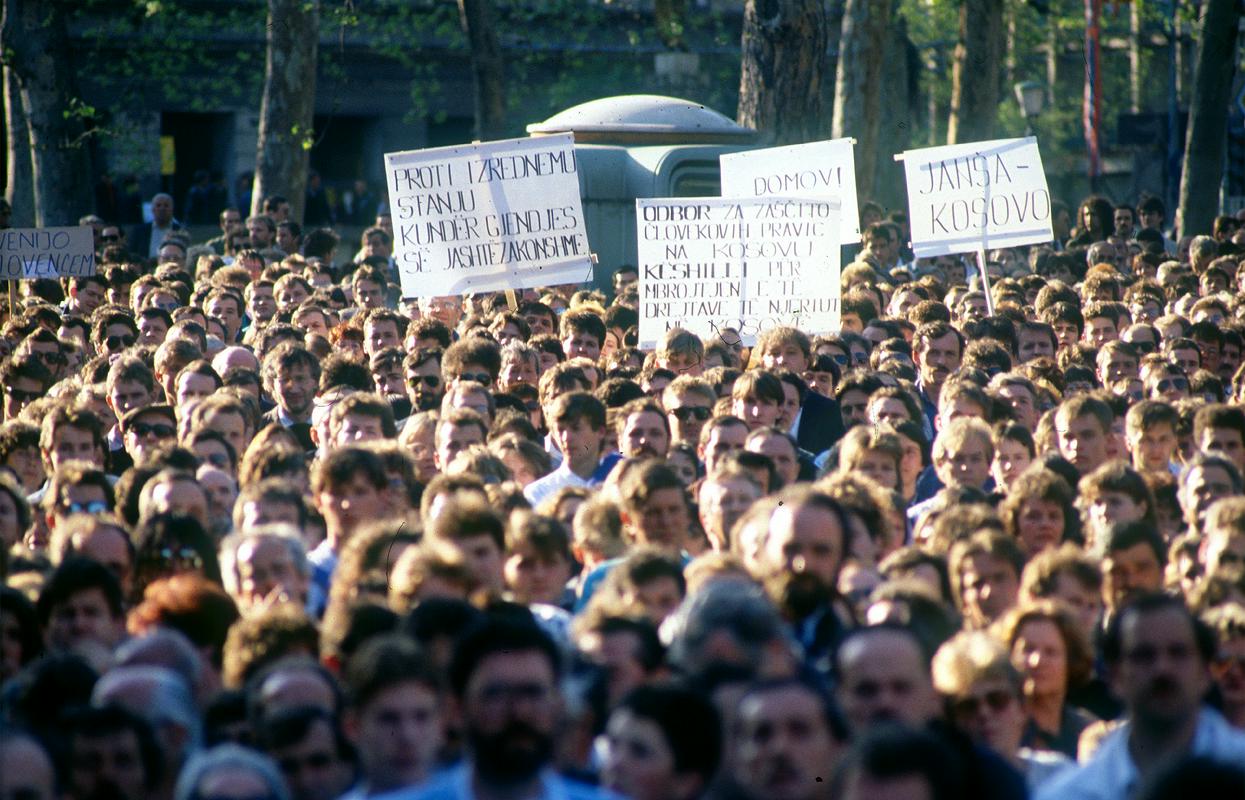
The May Declaration was first read out by the late poet Tone Pavček, at a mass protest gathering in support of Janez Janša, who was then arrested for a second time (the ruling in his case from 1988 became legally binding and he thus had to begin serving his sentence in Dob prison). The opposition of that time came out with a demand for a sovereign state of the Slovenian nation.
Signatories of the declaration were the Slovenian Writers Association (DSP), the Slovenian Democratic Union (SDZ), the Peasant Union of Slovenia (SKZ), the Slovenian Christian Social Movement (SKSG), the Social Democratic Union of Slovenia (SDZS), the University Conference of the Alliance of the Socialist Youth of Slovenia (ZSMS) and the Society of Slovene Composers.
In the introduction of the declaration they wrote that all the disagreements, provocations and open hostility that Slovenians experienced in Yugoslavia in 1988, convinced them they had reached a turning point in history. It all the more obliged them to express their will in a clear form, which would then be followed by actions in the future.
In their demands the signatories also stated the wish of Slovenians to live in a sovereign state of the Slovenian nation, adding that a Slovenian state could only exist if it was based on the respect of human rights and freedoms. In a democracy encompassing political pluralism, in a society ensuring spiritual and material prosperity, in accordance with the available natural resources and human capacities of Slovenia's citizens.
One of the authors of the May Declaration was France Bučar, a senior of Slovenian politics, who was also the first president of the first multi-party republic parliament. Mr. Bučar says the May Declaration was all about how to get out of Yugoslavia.
"There were two concepts. One was forced by Belgrade, who was aided by our political "big names", while the other concept was set as a goal by the Slovenian democratic public. Our main goal wasn't an independent Slovenia, but to create a relatively autonomous province or state… which would ensure a normal life for people in democracy. We were simply unable to achieve that, as Belgrade persisted that it was necessary to create a unified and unitary state, while the federative concept would only serve as an outside form. The May Declaration was an extreme attempt to cut away from that," remembers Bučar.

































































